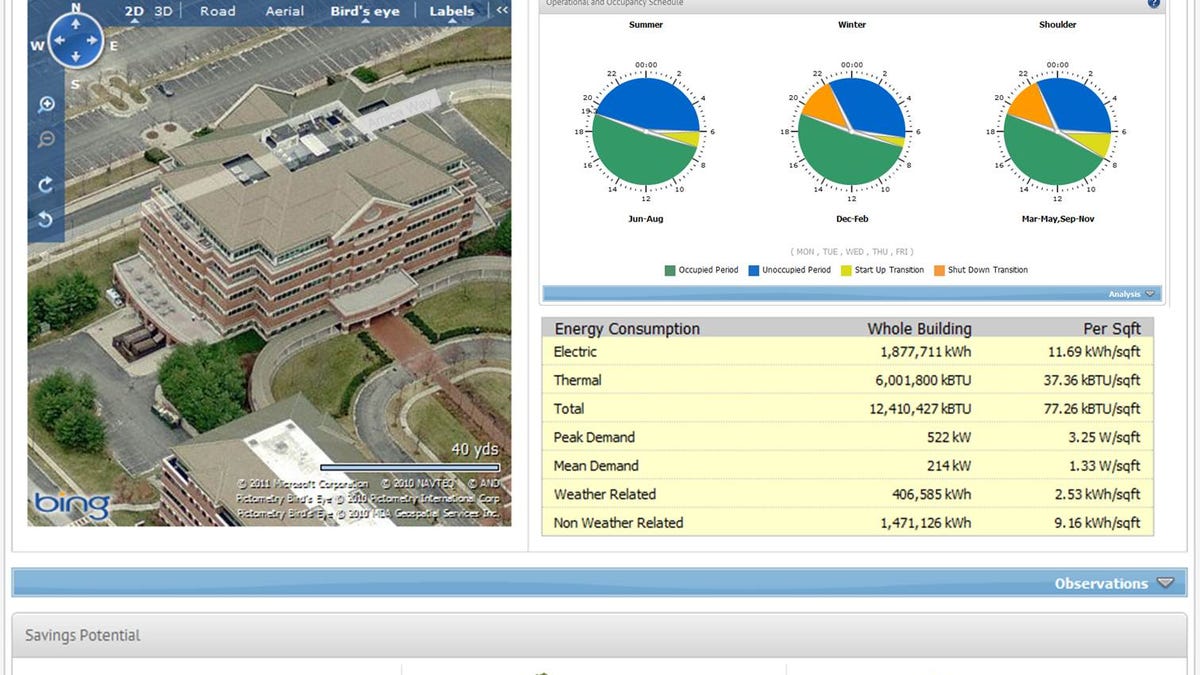Virtual building audit spots energy savings
FirstFuel crunches utility and weather data to build a profile of commercial building energy use and offer recommendations to improve efficiency by 10 percent.

Now there's an app to tell you how to make commercial buildings more energy efficient.
Startup FirstFuel announced today it has raised $2.4 million from venture capital companies Nth Power and Battery Ventures to commercialize a software system to remotely evaluate and measure commercial building efficiency.
What's unusual about the application is that it doesn't require a person to be dispatched to perform an energy audit or install meters to gather data. Instead, the company collects utility data on hourly energy consumption and combines it with weather information to create a profile of a specific building.
This "zero touch" method of evaluating buildings makes it far more scalable than the traditional approach, said co-founder and CEO Swapnil Shah. In its first trials, which were funded by a state grant, FirstFuel's software was able to identify energy reductions between 8 percent and 12 percent.
The analytics underneath the application can show how energy consumption is split between air conditioning, lighting, etc. The software sifts through 128 variables, including hourly utility data as well as outdoor temperature and wind.
The software is being used in a few pilot programs and the accuracy validated by a Department of Energy-sponsored study by the Fraunhofer Institute and consulting company the Cadmus Group, Shah said.
The company's business model is to sell its software to utilities to aid their energy-efficiency programs. Between 20 and 30 states have regulator-set targets to improve energy efficiency, Shah said. Utilities can use the software as part of their own portals, he said.
Commercial buildings represent one of the biggest energy consumers--and wasters--of energy. There are many companies, including both startups and large companies such as Siemens and IBM, that have software to improve building efficiency.
FirstFuel's software generates recommendations by comparing one building type to typical energy consumption. It could find, for example, that lights are left on when people are not in the building or that a cooling system uses more energy than the norm.
The software can also be used to measure the effectiveness of energy-saving measures, Shah added. In the U.S. last year, utilities had $6.6 billion to spend on energy-efficiency programs, a number that's projected to double in the next few years, he said.

